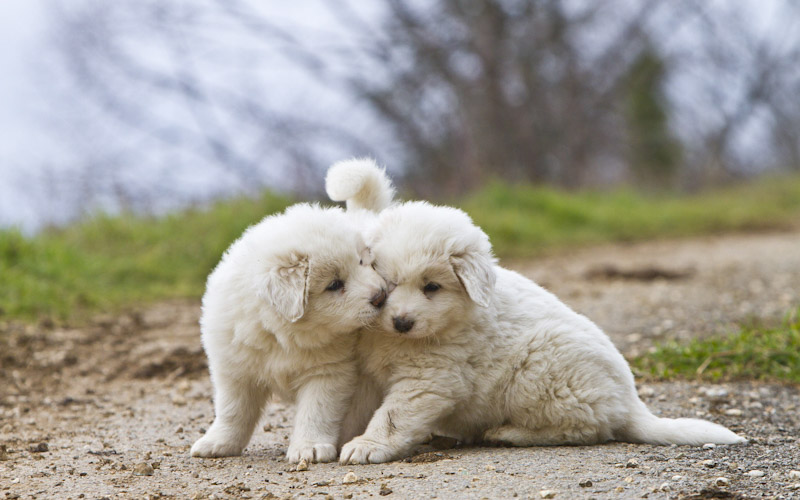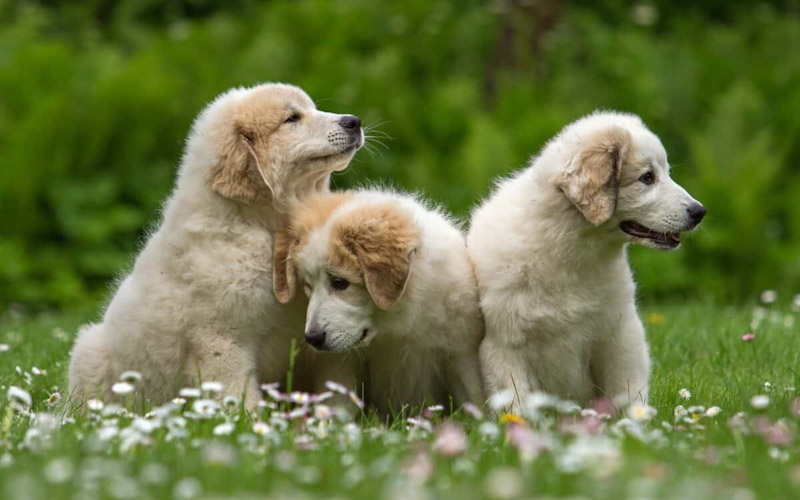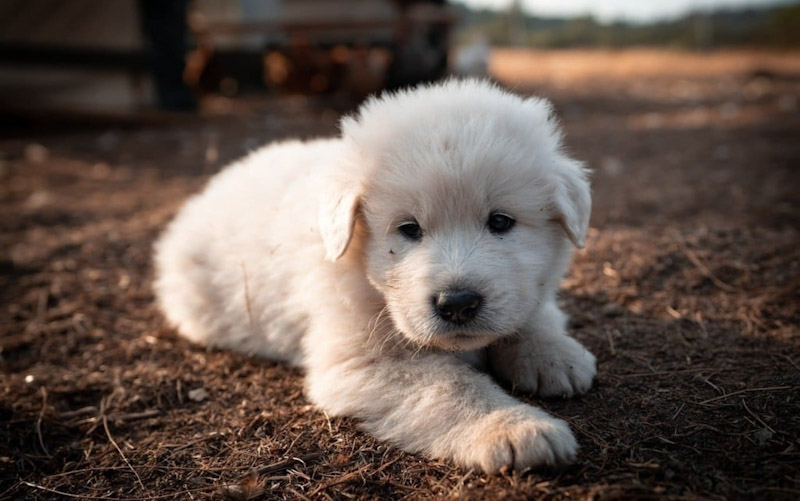Owning a Great Pyrenees comes with the joy of having a loyal, protective companion. However, these powerful dogs, known for their strong guarding instincts, can sometimes display aggression towards other dogs in the household, leading to tension and stress for all involved. This behavior can be particularly perplexing and concerning for owners who are trying to maintain a peaceful multi-dog environment.

Understanding the reasons behind your Great Pyrenees’ aggression is the first step toward addressing the issue effectively. While it can be frustrating to deal with, it’s important to remember that aggression often stems from deeply rooted breed characteristics, environmental factors, or even past experiences. By identifying the underlying causes and implementing targeted strategies, you can work towards creating a harmonious home where all your dogs can coexist peacefully.
In this article, we will explore the common reasons why Great Pyrenees may exhibit aggression towards other dogs and provide practical solutions to help you manage and reduce this behavior. Whether you’re dealing with territorial disputes, dominance issues, or anxiety-driven aggression, understanding your dog’s behavior is crucial to fostering a calm and cooperative household.
Understanding the Great Pyrenees Breed
The Great Pyrenees, a breed with a rich history as a livestock guardian, is renowned for its protective instincts and unwavering loyalty. Originally bred in the Pyrenees mountains of France and Spain to protect flocks of sheep from predators, these dogs are naturally inclined to defend their territory and those within it. Their role as guardians has ingrained in them a strong sense of independence, making them highly capable of making decisions without human guidance. This independent nature, coupled with their powerful build and imposing presence, makes the Great Pyrenees a formidable protector.
However, the very traits that make the Great Pyrenees such effective guardians can also contribute to aggression, particularly towards other dogs in the household. Their independence can sometimes be mistaken for stubbornness, and their dominance and territoriality can lead to conflicts when they perceive other dogs as threats to their domain. Understanding these breed-specific behaviors is crucial for addressing and managing aggression. By recognizing that these traits are inherent to the breed’s nature, owners can approach training and behavior management with greater empathy and effectiveness, creating a more harmonious environment for all pets in the home.

Common Causes of Aggression in Great Pyrenees
Territorial Instincts: The Great Pyrenees’ strong guarding nature often leads them to be highly protective of their home and family. This territorial instinct can result in aggression when other dogs encroach on what the Pyrenees perceives as its space. Whether it’s a new dog entering the household or even a long-term companion, the Great Pyrenees may view them as a potential threat, triggering aggressive behavior as a means of defending its territory.
Dominance and Social Hierarchy: In multi-dog households, the Great Pyrenees may assert its dominance to establish a clear social hierarchy. This breed’s natural confidence and authority can sometimes manifest as aggression towards other dogs, especially if they challenge the Pyrenees’ position in the pack. This behavior is not uncommon in breeds with strong protective instincts and should be managed carefully to prevent conflicts from escalating.
Lack of Socialization: Socialization is a critical component of a well-adjusted dog, and insufficient exposure to other dogs and situations during puppyhood can lead to behavioral issues later in life. For the Great Pyrenees, a lack of socialization can result in fear-based aggression, as they may not know how to interact appropriately with other dogs. This can be particularly problematic in adulthood when the dog is larger and more challenging to manage.
Resource Guarding: Great Pyrenees dogs may exhibit resource guarding behaviors, particularly when it comes to food, toys, or even the owner’s attention. This guarding instinct is an extension of their protective nature and can lead to aggression if other dogs come too close to valued resources. This behavior is often rooted in the dog’s instinct to protect its “possessions” and can be addressed through consistent training and management.
Fear or Anxiety: Past negative experiences or underlying anxiety can also trigger aggressive behavior in Great Pyrenees. If a dog has been involved in a traumatic incident or has a naturally anxious disposition, it may react aggressively out of fear. This type of aggression is often defensive, aimed at preventing a perceived threat from coming closer. Understanding the root cause of the fear or anxiety is key to addressing this type of aggression effectively.
By understanding these common causes of aggression, Great Pyrenees owners can take proactive steps to manage and mitigate these behaviors, ensuring a safer and more peaceful household for all their pets.

Conclusion: Why Is My Great Pyrenees Aggressive With My Other Dogs?
Aggression in Great Pyrenees towards other dogs in the household is a challenge that many owners face, but it’s a challenge that can be managed with the right approach. Understanding the breed’s history as a livestock guardian helps explain their strong protective instincts, independence, and territorial behavior—traits that can sometimes lead to conflicts with other dogs. Recognizing the common causes of aggression, such as dominance issues, lack of socialization, and resource guarding, is crucial for addressing these behaviors effectively.
By focusing on positive reinforcement training, controlled socialization, and establishing clear boundaries, you can work towards reducing aggression and fostering a harmonious environment for all your dogs. Routine and consistency play a vital role in helping your Great Pyrenees feel secure, while professional help should be sought in cases of severe aggression to ensure the safety of all pets and family members.
As a Great Pyrenees owner, your commitment to understanding and managing your dog’s behavior is the key to maintaining a peaceful, balanced household. Start implementing the strategies discussed in this article today, and take the first step towards creating a more cooperative and loving environment for all your pets. With patience and persistence, you can help your dogs coexist peacefully and enjoy the companionship they deserve.